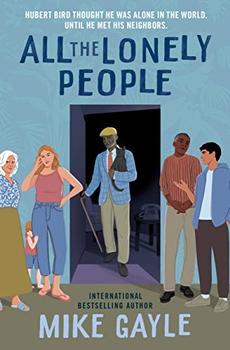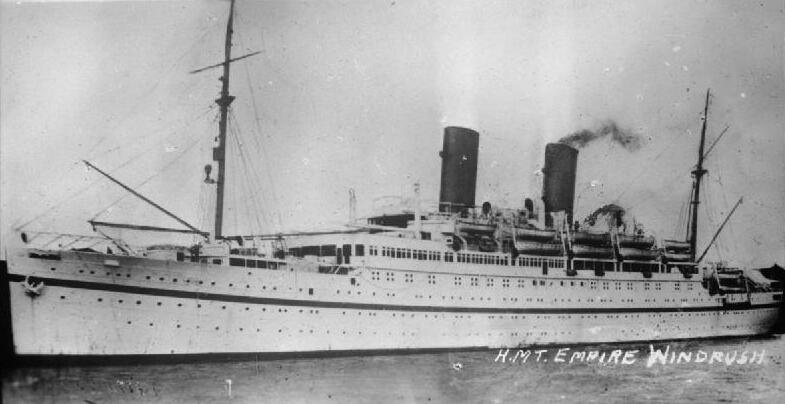Summary | Excerpt | Reading Guide | Discuss | Reviews | Beyond the Book | Read-Alikes | Genres & Themes | Author Bio

This article relates to All the Lonely People
 The protagonist of Mike Gayle's novel All the Lonely People is a member of the "Windrush generation," which refers to people from the Caribbean who emigrated to the United Kingdom between 1948 and 1971.
The protagonist of Mike Gayle's novel All the Lonely People is a member of the "Windrush generation," which refers to people from the Caribbean who emigrated to the United Kingdom between 1948 and 1971.
Facing a severe labor shortage after World War II, the British government began encouraging mass immigration from citizens of its colonies. This position was bolstered by the British Nationality Act of 1948, which combined the citizenship of Britain and its colonies and permitted these groups to enter the United Kingdom.
The HMT Empire Windrush ("HMT" stands for Hired Military Transport) arrived in Jamaica to pick up servicemen who were on leave during the time when these pro-immigration policies were under discussion, and an advertisement was placed offering free transport on the ship to anyone seeking employment in the UK. Many were eager to respond to the call from the "mother country." Some saw it as a way to escape financial hardship — Jamaica's economy had been decimated by a recent hurricane — while others were pulled by the opportunity for an adventure. Regardless of their motivation, the ship's logs show 1,027 passengers — mostly male, mostly Black — arrived at the Port of Tilbury (the principal port for London) on June 21, 1948, beginning a wave of immigration that many scholars point to as the start of modern British multicultural society.
Although their labor was sorely needed, most of these immigrants weren't welcomed with open arms. The newly arrived citizens were greeted with "No Blacks" signs on businesses, pubs and churches. In an attempt to dissuade the arrival of more non-whites, the government advised governments of the Caribbean islands against sending more people. A group of eleven Labour members of Parliament opposed to allowing Black people to immigrate to England sent a letter to Prime Minister Clement Attlee stating, in part, "An influx of coloured people domiciled here is likely to impair the harmony, strength and cohesion of our public and social life and to cause discord and unhappiness among all concerned." The immigrants were met with substandard housing, low-paying menial jobs and discriminatory policies across the board.
It's unclear how many people were ultimately a part of the Windrush arrivals, as records weren't always kept. It's estimated that by 1956, more than 40,000 immigrants from the Caribbean had moved to England. The Windrush period ended with the 1971 Immigration Act, which cracked down on immigration and introduced new restrictions. The situation became much worse for members of the Windrush generation in 2012, when Home Secretary (later Prime Minister) Theresa May enacted policies with the stated goal of creating a "really hostile environment for illegal immigrants." Many in the Windrush generation couldn't prove citizenship or long-term residence in the country. The government demanded four pieces of documentation from each year a person claimed to have lived in the UK, which many couldn't provide. As a result, they were denied healthcare, employment, education and other social services, and were in some cases deported.
The UK government apologized in 2018 after these injustices (now known as the "Windrush Scandal") came to light and a reparations fund was established, but the damage was done. As of September 2021, only about 20% of those believed to have been affected had asked for compensation and only about 5% had received it. It's widely believed that distrust of the government has led to a reluctance to apply for restitution.
The ship HMT Empire Windrush, from the collections of the Imperial War Museums, via Wikimedia Commons
Filed under People, Eras & Events
![]() This article relates to All the Lonely People.
It first ran in the September 21, 2022
issue of BookBrowse Recommends.
This article relates to All the Lonely People.
It first ran in the September 21, 2022
issue of BookBrowse Recommends.
Your guide toexceptional books
BookBrowse seeks out and recommends the best in contemporary fiction and nonfiction—books that not only engage and entertain but also deepen our understanding of ourselves and the world around us.